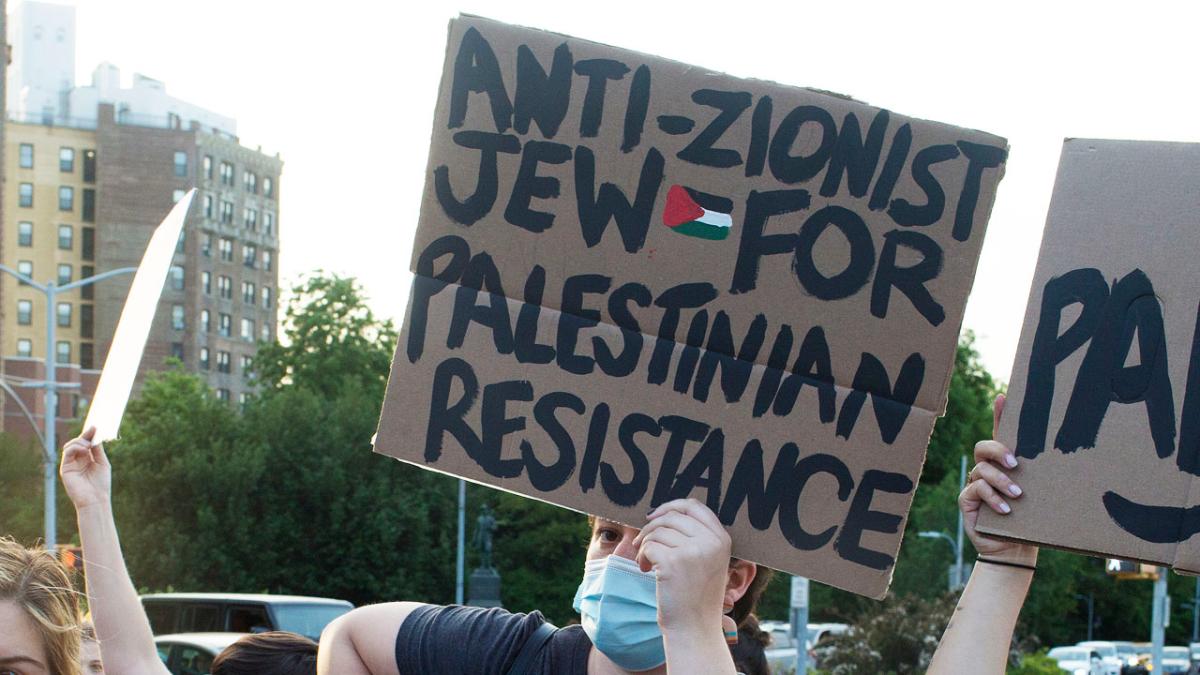
From a young age, I learnt that safety meant sticking to my Jewish community. It’s a small community; Jews only make up around 0.4% of the Australian population, according to the last census. Many Australian Jews are Holocaust survivors or their descendants. My family, including my grandparents who migrated to Australia in the 50s and 70s, was very close-knit, and a large part of our relationship played out over Shabbat tables and feasts for Jewish festivals and celebrations.
At my Jewish high school in Sydney, we were taught about the expulsion of Jews from Spain, the forced conversions, the pogroms of Eastern Europe, the Blood Libel accusations, the Holocaust and the many other tragedies and forms of persecution in Jewish history.
One Yom Kippur, my family and I were on our way to the synagogue when a group of white men screamed “Kikes!” at us from their car window. Later, I wished I had looked more closely at them. Were they skinheads or just average Australians?
The world outside our community felt untrustworthy and threatening. My high school, even now, has security guards on-site, while our synagogues have volunteers out the front from the Community Security Group, an organisation that recruits and trains volunteers to patrol synagogues and Jewish schools, due to death and bomb threats.
Unfortunately, antisemitism is part of the experience of being Jewish in Australia. Sometimes it involves a swastika armband or antisemitic graffiti, stickers and posters. Less frequently, it includes physical violence.
COVID-19 led to an increase in racism and discrimination against Asian Australian people, including Sinophobia. It also led some people to share old antisemitic tropes. When I first started seeing some of the vile cartoons and drawings – of hook-nosed men wearing kippot and spreading the virus through vaccines or germs, of the words “Don’t trust Jewish science”, of rich bankers profiting off people’s misery, of an Israeli flag replaced with a rat bearing the Star of David on its body, a kippah on its head and the words “The Real Plague” above it – I felt my reaction in my body: fear of what my grandparents warned me about.
Other times, I find it much messier to define antisemitism. For some Jewish people and organisations, antisemitism includes criticism of Israel.
Personally, I don’t agree with that definition of antisemitism, and there are others who feel the same way in Australian and international Jewish communities. However, there simply isn’t much of a place for criticism of Israel within the Jewish community or outside it, including in the Australian media.
After a group of Australian Jews counter-demonstrated in Melbourne at a Rally for Israel with banners that stated “Jews for a free Palestine”, Channel 7 referred to them as “Free Palestinian protestors”, while Liberal MP David Southwick described them as a “rabble anti-Israel protest… in the jewish communities (sic) backyard”, erasing the counter-demonstrators’ Jewishness.
I spend a lot of time grappling with how we define antisemitism as a community. It’s not necessarily definable. Perceptions of what is antisemitic are subjective, often influenced by trauma and family history, and should be up to Jewish people to define, although this can lead to conflict.
For some people, especially those whose family members were victims of the Holocaust, there can be a very real sense of Israel being the only place where it is safe to be Jewish. I like the idea of Jewish people being safe, very much, but I’ve become aware of the cost.
I can’t ignore the fact that Israeli police forcibly evicted Palestinian families in Sheikh Jarrah, raided the Al-Aqsa Mosque, fired rubber bullets and stun grenades, and barricaded Damascus Gate during Ramadan. While it is true that Hamas fired missiles at Israel, and that 12 Israelis were killed in the recent conflict, we also need to remember that Israel’s military assaults on Gaza have killed over 232 people, including 65 children.
The latest outbreak of violence has, unfortunately, inflamed antisemitism in Europe, the United States and in Australia, and on social media.
Research that analysed incidents of antisemitism in Australia found increases in hate incidents during Jewish religious festivals and during the 2014 Israel-Gaza conflict, and a marked increase in the number of serious incidents including physical assaults and verbal abuse in Australia from 2019 to 2020. This has, no doubt, been exacerbated by the growth of white supremacist movements in Australia and globally.
I might not always feel safe as a Jewish Australian, but I think it’s important to acknowledge that I am proud of being Jewish. I love how nurturing the community is, the sense of taking care of each other through kindness, caring and sharing meals, and how progressive many synagogues and Jewish organisations are.
I appreciate how many non-Jewish Australians have taken the time to find out about Jewish festivals and religious practices, to ask questions about Israel and Palestine without making assumptions about my beliefs, and to listen if I bring up my experiences of antisemitism.
It might be a scary time in the world but these conversations, and acknowledgement and recognition from others, are the first steps in addressing antisemitism and other forms of oppression. And that gives me hope.



